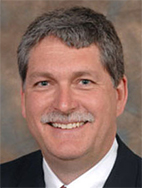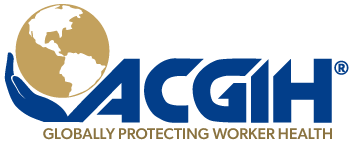- About
-
-

- About
-
ACGIH is a 501(c)(3) charitable scientific organization that advances occupational and environmental health.
-
-
- Subscriptions
-
- Science
-
-

- Science
-
This section has been established to help educate industry, government, and the public on what TLVs and BEIs are, and how TLVs and BEIs may best be used.
-
-
- Career Development
-
-

- Career Development
-
ACGIH is committed to providing its members and other occupational and environmental health professionals with the training and education they need to excel in their profession.
-
-
- Publications
-
-

- Publications
-
ACGIH has publications in many different areas that fit your needs in your field.
-
- Publications Store
- ACGIH Signature Publications
ACGIH Digital Library
If you need to purchase the Digital Library, click here.
If you have purchased and need to access the Digital Library, click here.
-
-

The Herbert E. Stokinger Award is given each year to an individual who has made a significant contribution in the broad field of industrial and environmental toxicology.
The 2021 Stokinger Award recipient is M. Andrew Maier, MS, PhD, CIH, DABT, FAIHA.
Dr. Maier has over 25 years of professional work experience in the areas of environmental health, occupational hygiene, and toxicology. He currently serves as a Principal Science Advisor with Cardno ChemRisk. Prior to joining Cardno he served as an Associate Professor of Environmental and Industrial Hygiene at the University of Cincinnati (UC) College of Medicine leading a research program in occupational exposure assessment, toxicology and risk assessment. Prior to joining UC he served as the Director for the non-profit organization Toxicology Excellence for Risk Assessment (TERA).
Dr. Maier has provided oversight for diverse risk and safety assessment projects and spearheaded new initiatives. In his capacity as an industrial hygienist, toxicologist and risk assessor, he has led numerous projects and has co-authored toxicological reviews, technical reports and human health risk assessment documents for several hundred individual substances. These assessments include critical examination of epidemiology and toxicology data for deriving cancer and non-cancer risk values (e.g., U.S. EPA reference concentrations and doses, U.S. EPA and State Agency drinking water criteria, occupational and acute emergency exposure limits for U.S. NIOSH and private sponsors; and allowable daily exposures for food and pharmaceutical guidelines). He also completed numerous cancer risk assessments, including critical examination of mode of action and human relevance considerations using weight of evidence methods in support of dose-response assessments for EPA and CA Proposition 65 issues.
Dr. Maier has an established history in occupational toxicology and industrial hygiene. He completed his M.S. in industrial health from the University of Michigan. He has developed numerous projects in this area for NIOSH and for private sponsors. He is certified in comprehensive industrial hygiene practice by the American Board of Industrial Hygiene (CIH), has managed industrial hygiene programs for a diverse array of facilities, and has directed academic and continuing education courses on evaluating workplace exposures. Based on this experience he is well versed in the areas of occupational, consumer, and environmental exposure assessment, development and implementation of control strategies, hazard communication and training, and health and safety management systems.
Dr. Maier completed his Ph.D. in toxicology from the University of Cincinnati with research interests in the molecular mechanisms of toxicity. He continues to be actively engaged in developing research to improve risk assessment approaches through the integration of basic biology and risk assessment science. Recently his research efforts have focused on methods and approaches for using biological exposure and effect markers to reduce uncertainties in risk assessment and methodologies for deriving occupational exposure limits. He has served as a Toxicology Fellow at NIOSH in support of exposure limit methods development and is the Publications Coordinator and past-Chair of the Workplace Environmental Exposure Levels (WEEL) Committee. He is a Diplomate of the American Board of Toxicology (DABT) and Fellow of the American Industrial Hygiene Association.
Dr. Maier remains active in communicating his findings to the broader scientific community through active participation and leadership in professional societies, routine publication of his work, development and conduct of training courses, and presentation of invited lecturers. He has served in several capacities in support of scientific peer reviews and workshops, including as a panel chairperson, workshop moderator or facilitator, meeting organizer, and external peer reviewer. Current efforts include developing and improving the use of collaborative approaches to chemical exposure and risk issue resolution.
Click here to view lecture.
Previous Award Recipients
- 1977 — John A. Zapp, PhD
- 1978 — Ralph C. Wands, CIH
- 1979 — Henry F. Smyth, Jr., PhD
- 1980 — Anna Baetjer, MD
- 1981 — Ernest Mastromatteo, MD
- 1982 — Hervey B. Elkins, PhD, CIH
- 1983 — Theodore Torkelson, ScD
- 1984 — Carrol S. Weil
- 1985 — Roger O. McClellan, DVM
- 1986 — Emil A. Pfitzer, ScD
- 1987 — Robert T. Drew
- 1988 — Melvin E. Andersen, PhD
- 1989 — Mary O. Amdur, PhD, CIH
- 1990 — Bernard Weiss, PhD
- 1991 — Renate Kimbrough, MD
- 1992 — John Doull, PhD, MD
- 1993 — Morton Lippmann, PhD, CIH
- 1994 — Robert Lauwerys, MD, ScD
- 1995 — Cesare Maltoni, MD
- 1996 — Elizabeth K. Weisburger, ScD, PhD
- 1997 — Herbert E. Christensen, ScD, MPH
- 1998 — Walter W. Melvin, Jr., ScD, MD
- 1999 — Roy Ernest Albert, MD
- 2000 — George M. Rusch
- 2001 — Gunnar Johanson, Doctor of Medical Science
- 2002 — Robert A. Scala, PhD
- 2003 — Prof. Dr. med. Helmut Greim
- 2004 — Hanspeter Witschi, MD
- 2005 — B. Dwight Culver, MD
- 2006 — Richard B. Schlesinger, PhD
- 2007 — Gerald L. Kennedy, Jr., DABT
- 2008 — Curtis D. Klaassen, PhD
- 2009 — Vincent Castranova, PhD
- 2010 — Bruce D. Naumann, PhD, DABT
- 2011 — Len Levy OBE, PhD, FFOM, FBTS
- 2012 — Michelle M. Schaper, PhD
- 2013 — Günter Oberdörster, DVM, PhD
- 2014 — Franklin E. Mirer, PhD, CIH
- 2015 — Nigel Walker, PhD, DABT
- 2016 — William D. Wagner
- 2017 — John Cocker, PhD
- 2018 — Mark D. Hoover, PhD, CHP, CIH
- 2019 — Vincent Castranova, PhD
- 2020 — Dr. Robert Landsiedel
Sign up to receive the latest news about newly released publications, upcoming and on-demand webinars, continuing education courses and programs, and special events, ACGIH® membership and more!






